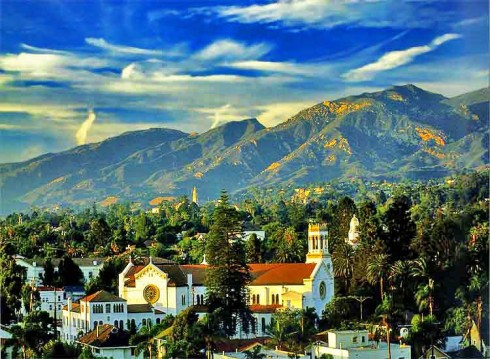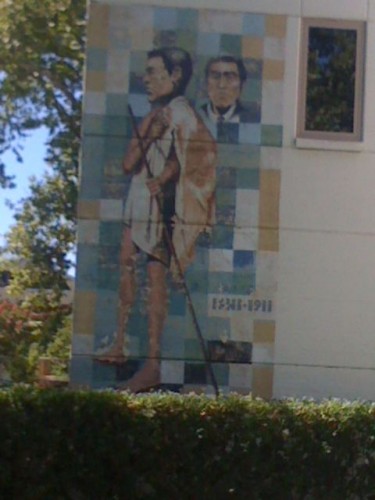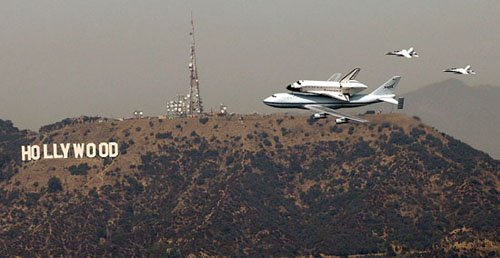The Hunger Ahead
Leslie Evans
The Coming Famine: The Global Food Crisis and What We Can Do to Avoid It . Julian Cribb. Berkeley: University of California Press, 2010. 248 pp.
The Race for What’s Left: The Global Scramble for the World’s Last Resources. Michael T. Klare. New York: Henry Holt and Company, 2012. 306 pp.
Back in 1798, Thomas Malthus published his Essay on the Principle of Population . He put forth the simple proposition that, land being finite, the food supply increases only arithmetically, by small percentages, while humans have multiple births that in the next generation have multiple births so that population increases geometrically and will periodically locally, and in the end globally, outrun the food supply. The premise would seem irrefutable, though the date when the ultimate bill comes due is uncertain. On the right, Malthus was rejected on the ground that God would take care of his own. On the left, for two centuries Malthus was dismissed with the argument that there would always be sufficient food if distribution were more equal. We are now in the endgame.
A CITY THAT BECKONS AND SUMMONS THE PAST
By Bob Vickrey
As I drove north on Pacific Coast Highway and caught a glimpse of the place where mountains meet the ocean, there suddenly appeared a vista that rekindled old memories and also marked the dramatic passing of time. Read more
Chapter 1: Ishi. The First Chapter Of “Travels Through California Literature”
Phyl van Ammers
The highways, freeways, streets and back roads of the state lead through California’s literature. Califia is the beginning of the journey for Europeans. The real beginning is the immense literature of the native people.
Around 1500, Garci Rodríguez de Montalvo introduced Califia in The Adventures of Esplandián. She ruled black women in her kingdom of California.
Whoopi Goldberg narrated her fictional life in a former attraction in Disney’s California Adventures before that site became the Little Mermaid ride. From there, the trip should head northeast to Riverside County. Read more
Interspecies Friendships
Humans are rapidly exterminating most of the larger animal species on our planet. Here are some photos to remind us what it can be like to share affection with other animals.
Forwarded to us by Kathleen Rosenblatt. NOTE: You can click within each photo to see the next one, or use the arrows at the bottom, but the full screen icon on the right doesn’t work and it doesn’t run as an automatic slide show.
If you have Microsoft PowerPoint or the PowerPoint Viewer and want to see this show full screen (much better!), Click Here
Chasing Endeavour
By LIONEL ROLFE
I stood on the banks of the Los Angeles River in order to get a glimpse of Endeavour flying over the southeast end of the Santa Monica Mountains on its way to Griffith Park Observatory.
It would have been much better, of course, to get up to the observatory, a mile or two west of the river bank. Endeavour was scheduled to fly as close to the observatory as it safely could. Whereas here by the river, the precipitous southeastern mountains blocked a direct view of the action around the observatory. Read more
The Strange Career of Ahmad Kamal and How He Helped the CIA Invite Radical Islam into Europe
Leslie Evans
A Mosque in Munich: Nazis, the CIA, and the Muslim Brotherhood in the West. Ian Johnson. Boston: Houghton Mifflin Harcourt, 2010. 318 pp.
Oh what a tangled web we weave,
When first we practise to deceive!
– Sir Walter Scott
Everyone is familiar with the disastrous after effects of the American effort to mobilize radical Islam to defeat the Soviet occupation of Afghanistan in the 1980s, a project that gave birth to Al Qaeda. Ian Johnson’s A Mosque in Munich is an account of a much older, less violent, and smaller-scale chapter in Western attempts to co-opt Islam in the battle with Communism, tracing ill-considered U.S. help to radical Islam in establishing a base in Western Europe. It opens with Nazi use of Soviet Muslim defectors and prisoners of war to try to incite revolt against Soviet rule among the Turkic peoples of Soviet Central Asia. During the war the center of this operation was Berlin; in the postwar period it moved to Munich in West Germany, where, as the Cold War blossomed, both the West German government and the American CIA took over the group of aging Soviet Muslims who had fought on the Nazi side, as well as their German handlers, to use as propagandists to the world’s Muslims, exposing Soviet oppression of Central Asian peoples. Read more
Mark Twain on the Mormons
[The following is the full text of Chapter 16 of Mark Twain’s Roughing It (1872), his account of his experiences in Salt Lake City, the Mormon capital, on his way west. As we have in Mitt Romney our first serious Mormon contender for the U.S. presidency it would seem that this controversial religion would generate far more comment than it has. It seems that in matters of religious doctrine the founders of each sect can make up anything they want and with a straight face expect the outside world to nod and be respectful. The major media have been more than squeamish in treading on this convention in Romney’s case. Only as we get to the fringes of this process with groups such as Scientology does the press generally dare to make a few snide remarks and express some doubt that anything like their scriptures ever happened. Happily Mark Twain was less easily buffaloed. In our current age, when the Republican Party has gone theocratic on us and no longer feels bound by fact checkers or an external reality, at least those of us who have not bought into the cult might look askance at some of the things our potential president takes as literal truth and wonder how this might affect his grip on issues of great moment to our future.] Read more
A Personal Odyssey To The Land Down Under
By LIONEL ROLFE
A few months shy of my 70th birthday, I pulled my tired body full of aches and pains and the broken hubris associated with a divorce and headed to Australia. My cousin, who has several hundred acres of vineyards in Moama in New South Wales, sent me a ticket.
I felt like I had been spiraling down into an abyss of old age and failing health since the divorce, which left me unsure that I would even be able to deal with the normal travails of modern aircraft travel.
When I panicked because I lost my cell phone, which wouldn’t even be needed until I got back to Los Angeles, a kindly Virgin Australian stewardess took pity on me and found where it had slipped beneath my seat. Perhaps she was not the most beautiful woman I had ever seen, but healthy and warm and affectionate, and she seemed like an angel to me. After she helped me calm down, she passed by my seat a couple of times later, and her fingers gave me a reassuring touch that felt wonderfully libidinous. Read more
Poems For Labor Day
Every Day Is An Act of Resistance: Selected Poems by Carol Tarlen (Mongrel Empire Press) edited by Julia Stein and David Joseph is the first poetry book by Carol Tarlen, a San Francisco radical poet who died in June 2004. Jack Hirschman in his introduction says that in North Beach in the 1980s, 1990s and early 2000s, Tarlen was writing some of the best poetry around.
Detroit poet Jim Daniels says about Tarlen’s work, “This book is simply a treasure. Carol Tarlen’s poems bring the human and political together in rich, heart-felt ways….”
Janet Zandy says this about Tarlen: “Tough girl, quiet Quaker, brilliant poet, worker for the working-class…. Her luminous poetic voice is large, direct, high-steppin, and justice-driven. Go ahead … read her poetry, teach it to your children.
Julia Stein wrote an obituary/biography, “Death of a Poet,” which was first published in Pemmican and then on the blog caroltarlenlives. If you want more background information about Tarlen’s life, work, and death
The book can be ordered from the Mongrel Empire Press website:
http://www.mongrelempire.org/Mongrel_Empire_Press/Poetry.html
THE LIBERAL BOSS
It was, finally, all she wanted
to be alone
in the back conference room
her empty desk mocking
her silent telephone
her supervisor’s anxious face
desperate to delegate
a rush job xeroxing
twenty-three travel vouchers
and their supporting documentation
Symptoms of U.S. Decline
Leslie Evans
In his State of the Union address this year President Obama declared, ”Anyone who tells you that America is in decline, or that our influence has waned, doesn’t know what they’re talking about.”
Mitt Romney says the same thing, excepting a few admissions of slippage he feels he can blame on Obama, harping on America’s “exceptionalism” and the supposedly pending new “American Century,” the last one, proclaimed by Time magazine’s founder Henry Luce in 1941, having run a bit shorter than planned.
The counter argument was voiced by Jeff Daniels as the fictional news anchor in HBO’s new series The Newsroom, in a clip widely circulated on YouTube. Asked why America is the greatest country in the world he responds, “It’s not the greatest country in the world. We lead the world in only three categories: number of incarcerated citizens per capita, number of adults who believe angels are real, and defense spending, where we spend more than the next twenty-six countries combined, twenty-five of whom are allies.”











